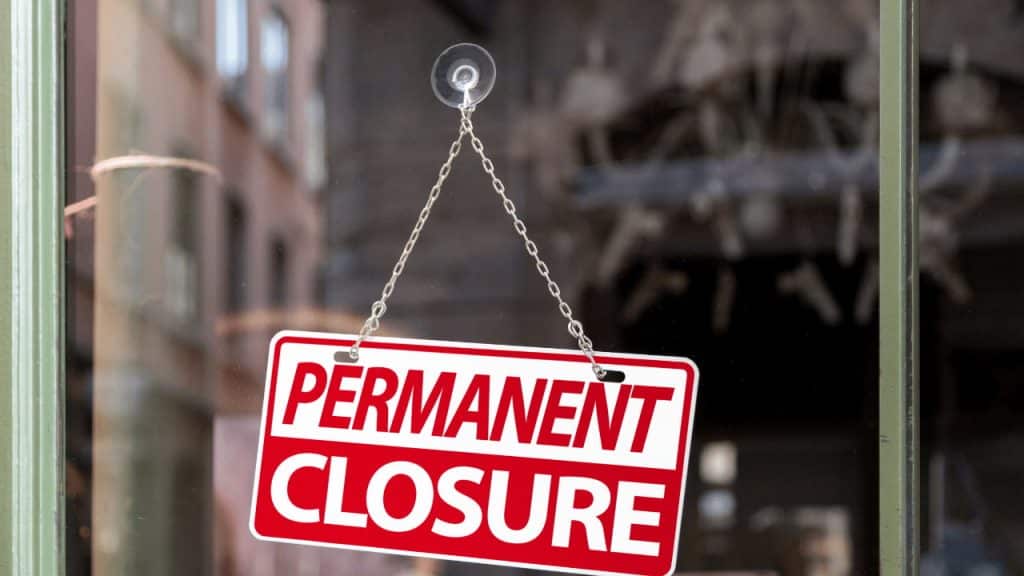Thinking of closing your Amazon seller account? It’s a big decision, whether for a new path, simplifying, or a break. Don’t worry; we’ll guide you smoothly, every step of the way. Our guide, “How to Close Your Amazon Seller Account,” explains the whole process. We keep it simple and clear, answering your questions. From start to finish, we’re here to help you confidently close your account.
Ready to start this new chapter? Keep reading to learn exactly how to close your Amazon seller account, and rest easy knowing you’ve got all your bases covered. Let’s dive in!
Understanding Amazon Seller Account Closure
Closing an Amazon seller account is a straightforward process, but it’s important to understand what it entails before initiating the process. The account closure process is irreversible, and once an account is closed, it cannot be reactivated. Therefore, it’s crucial to ensure that the decision to close an account is final and that all necessary steps are taken before proceeding.
Types of Amazon Seller Accounts

When considering closing your Amazon seller account, it’s important to understand the basics and the implications of your decision. Here’s a simplified breakdown:
- Individual Account: Best for sellers who move just a few items each month.
- Professional Account: Ideal for sellers pushing more than 40 items monthly.
Before Closing Your Account
- Decide if switching between account types or continuing to sell on Amazon might be better for you.
- Closing your account permanently removes all associated data, like customer and transaction information, and reviews.
- Make sure all outstanding issues are resolved and back up all necessary data before you start the closure process.
While closing an Amazon seller account is a permanent solution, sellers who need to take a break from selling on Amazon can use vacation mode as a temporary solution. Vacation mode allows sellers to temporarily deactivate their listings without closing their account.
In summary, closing an Amazon seller account is a straightforward process, but it’s important to understand the implications before initiating the process. Sellers should ensure that they have resolved all outstanding issues and that they have a backup of all necessary data before closing their account. Additionally, sellers who need a break from selling on Amazon can use vacation mode as a temporary solution.
What Happens When You Close Your Amazon Seller Account?
Closing your Amazon Seller account is a big decision that has some serious consequences. Here’s what you need to know about what happens when you close your Amazon Seller account:
- You will lose access to your listings and seller account information. When you close the seller account, you will no longer have access to your listings, order history, customer feedback, and other seller account information. It is important to download any important data before you close your account.
- You will not be able to sell on Amazon anymore. Closing your Amazon Seller account means that you will no longer be able to sell on Amazon. If you change your mind and want to start selling again, you will need to create a new account and start from scratch.
- You will still be responsible for any outstanding fees or charges. If you have any outstanding fees or charges, you will still be responsible for paying them even after you close your Amazon Seller account.
- You will not be able to access your customer data. Once you close your Amazon Seller account, you will no longer have access to your customer data. This means that you will not be able to contact your customers or use their data for any purpose.
- You will not be able to use any Amazon services associated with your account. Closing your Amazon Seller account means that you will no longer be able to use any Amazon services associated with your account, such as Amazon Web Services or Amazon Prime.
It is important to carefully consider the consequences of closing your Amazon Seller account before making a decision. If you have any questions or concerns, you should reach out to Amazon Seller Support for assistance.
Steps to Take Before Closing Your Amazon Seller Account

Before closing your Amazon Seller account, there are a few steps you need to take to ensure that the process goes smoothly. In this section, we will provide a checklist of actions sellers should take before closing their account.
Ensure Account is Eligible for Closure
Before closing your Amazon Seller account, make sure that your account is eligible for closure. If you have any unresolved issues, such as pending orders or negative feedback from customers, you will not be able to close your account. Therefore, it is important to resolve any outstanding issues before initiating the account closure process.
Fulfilling Outstanding Orders
If you have any outstanding orders, you must fulfill them before closing your Amazon Seller account. Failing to do so can lead to negative feedback from customers and can damage your seller reputation. Make sure to communicate with your customers and provide them with updates on their orders.
Canceling Active Subscriptions
If you have any active subscriptions, such as Amazon Prime or Amazon Advertising, make sure to cancel them before closing your Amazon Seller account. Failure to do so can result in charges to your credit card or bank account. Check your account settings to ensure that all subscriptions have been canceled.
Ensuring All Fees Are Paid
Before closing your Amazon Seller account, make sure that all fees have been paid. This includes fees for selling on Amazon, as well as any outstanding balances on your credit card or bank account. Failure to pay all fees can result in legal action and damage to your credit score.
By following these steps, you can ensure that your Amazon Seller account is closed smoothly and without any issues. Remember to communicate with your customers and resolve any outstanding issues before initiating the account closure process.
How to Permanently Close Your Amazon Seller Account

Deciding to permanently shut down your Amazon Seller account is a significant decision. When you’re sure you’re ready to take this step and say goodbye to your seller profile, we’ve laid out a clear, hassle-free process to help you close your account smoothly.
Here’s how to do it straightforwardly:
- Resolve Any Outstanding Issues: Before you can close your account, make sure all your sales are finalized, any returns are processed, and disputes are resolved. Amazon won’t let you close your account if there are pending transactions.
- Backup Your Data: Download any important data you might need in the future, like sales reports, customer information, and tax documents. Once your account is closed, you won’t have access to this information.
- Go to Your Account Settings: Log into your Amazon Seller Central account, navigate to the ‘Settings’ menu, and find the option for Account Info.
- Request Account Closure: Inside Account Info, look for a section or link that allows you to close your account. If you can’t find it, Amazon’s Help Center or customer service can guide you to the right place.
- Confirm the Closure: You’ll likely need to confirm your decision to close your account. This might be through a confirmation email or a final click within Seller Central. Follow the instructions carefully to ensure your account is fully closed.
- Wait for Confirmation: Amazon will review your request and confirm once your account has been closed. This process can take a few days, so be patient.
Remember, closing your account is permanent. You won’t be able to reactivate it or retrieve any data after closure, so make sure you’re ready before you take this step.
In conclusion, closing your Amazon seller account is a simple and straightforward process that can be completed in just a few steps. By following the step-by-step instructions provided by Amazon, you can ensure that your account is closed properly and that any outstanding issues are resolved before you move on to other platforms.
Considering Alternatives to Account Closure on Amazon

Before closing an Amazon seller account, it is essential to consider alternatives that might be less drastic. Sellers may want to take a break from selling on Amazon or temporarily deactivate their listings instead of closing the account. Additionally, switching to a different selling plan might be a viable alternative to closing the account.
Temporarily Deactivating Listings
If a seller needs to take a break from selling on Amazon, they can temporarily deactivate their listings. To do this, they need to access their inventory in Seller Central, select the items they want to deactivate, and click on the “Deactivate” button. This will remove the listings from Amazon until the seller reactivates them.
Switching to a Different Selling Plan
Sellers who are unhappy with their current selling plan might consider switching to a different one instead of closing their account. Amazon offers several selling plans, including the Individual plan and the Professional plan. The Individual plan charges a per-item fee for each sale. While the Professional plan requires a monthly subscription fee but offers additional features and benefits.
By switching to a different selling plan, sellers can continue to sell on Amazon without having to close their account. However, it is essential to review the different plans carefully to determine which one is the best fit for the seller’s needs.
In conclusion, before closing an Amazon seller account, sellers should consider alternatives such as temporarily deactivating listings or switching to a different selling plan. These alternatives might be less drastic and allow sellers to continue selling on Amazon without having to close their account.
Common Reasons Why Amazon Sellers Close Their Accounts

Closing an Amazon seller account is a big decision that should not be taken lightly. However, there are many reasons why a seller may choose to close their account, ranging from personal to business-related issues.
Here are some of the most common reasons why Amazon sellers close their accounts:
- Low Sales: If a seller is not making enough sales to justify the cost of maintaining an Amazon seller account, they may choose to close their account. This is particularly common among small businesses and new sellers who are struggling to gain traction on the platform.
- High Fees: Amazon charges a variety of fees to sellers, including referral fees, fulfillment fees, and storage fees. If these fees become too high, a seller may choose to close their account and look for other selling platforms with lower fees.
- Account Suspension: Amazon has strict policies regarding seller performance and product quality. If a seller violates these policies, their account may be suspended or even permanently banned. In such cases, the seller may choose to close their account and move on to other selling platforms.
- Personal Reasons: Sometimes, a seller may need to close their Amazon seller account for personal reasons, such as health issues, family emergencies, or other life events.
- Business Changes: If a seller’s business model changes, they may no longer need an Amazon seller account. For example, if a seller decides to focus on selling products through their own website or brick-and-mortar store, they may choose to close their Amazon seller account.
- Competition: Amazon is a highly competitive marketplace, and some sellers may find that they are unable to compete with other sellers on the platform. In such cases, they may choose to close their account and look for other selling opportunities.
In conclusion, there are many reasons why Amazon sellers may choose to close their accounts. Whether it’s due to low sales, high fees, account suspension, personal reasons, business changes, or competition. It’s important for sellers to carefully consider their options before making a decision.
What to Do After You’ve Closed Your Amazon Seller Account

Once a seller has successfully closed their Amazon seller account, there are several steps they can take to move forward.
Starting a New Account on Amazon
If a seller decides to return to Amazon, they can start a new account by following the same steps they did when they created their first account. However, it’s important to note that Amazon may not allow a seller to open a new account if their previous account was closed due to policy violations or other issues.
Exploring Other E-commerce Platforms
Closing an Amazon seller account doesn’t mean the end of a seller’s e-commerce journey. There are several other platforms available that sellers can explore to continue their business. Some popular options include eBay, Etsy, and Shopify. Each platform has its own set of policies and fees, so it’s important for sellers to do their research and find the best fit for their business.
Retrieving Important Information
Before closing an Amazon seller account, it’s important for sellers to retrieve any important information they may need in the future. This includes sales data, customer information, and any other records that may be useful. Amazon provides a download option for sellers to retrieve their sales data, and customer information can be exported from the order reports section of the seller account.
Evaluating Business Strategies
Closing an Amazon seller account can be an opportunity for sellers to evaluate their business strategies and make any necessary changes. This includes analyzing their product offerings, pricing, and marketing strategies. Sellers can also use this time to explore new product categories and expand their business in different directions.
Overall, closing an Amazon seller account can be a difficult decision, but it’s not the end of a seller’s e-commerce journey. By exploring other platforms, starting a new account on Amazon, and evaluating their business strategies, sellers can continue to grow and thrive in the e-commerce industry.
Conclusion
Closing an Amazon seller account is a decision that should not be taken lightly. It is important to carefully consider the reasons for closing the account and to ensure that all necessary steps are taken before proceeding. This includes resolving any outstanding balances, transactions, or customer issues.
In summary, the process of closing an Amazon seller account involves logging into the account, going to the “Settings” page, selecting “Account Info,” and then choosing the option to close the account. It is important to review the information on the page and follow the prompts to provide any necessary information.
Before closing your Amazon seller account, consider improving listings or seeking Amazon support as alternative solutions. Additionally, sellers should be aware of any potential consequences of closing their account, such as losing access to customer data or being unable to sell on Amazon in the future.
Overall, closing an Amazon seller account can be a complex process, but by carefully considering the decision and taking the necessary steps, sellers can ensure a smooth transition.
Tune into the Seller Session Podcast to hear insights about Amazon Seller Accounts:
- Amazon Boost and Thousands of Sellers Lose Their Accounts
- The Pros & Cons Of Having Multiple Amazon Seller Accounts
Frequently Asked Questions
What steps are required to delete an Amazon seller account?
To delete an Amazon seller account, the following steps are required:
- Log in to your Amazon Seller Central account.
- Click on the “Settings” tab.
- Select “Account Info.”
- Scroll down to the “Close Your Account” section.
- Review the information on the page and click on the “Request Account Closure” button.
- Follow the prompts to provide additional information and confirm the account closure.
Why can’t I close my Amazon seller account?
You might be unable to close your Amazon seller account if there are pending transactions or unresolved issues. Ensure all sales are complete, and customer issues are addressed before trying to close your account.
Can I close my Amazon seller account and open a new one?
Yes, you can close your Amazon seller account and later open a new one, but you may need different account information to avoid conflicts with Amazon’s policies.
How long does it take to close Amazon account?
Amazon mentions that while account deletion requests typically go through in about 12 hours, sometimes it can take a bit more time. If your account has open orders or pending refunds, Amazon may need more time to resolve these before closing it. Amazon requires additional time to finalize open orders and pending refunds before permanently closing your account.
Will I still get my refund if I close my Amazon account?
If you’re owed a refund, Amazon should still process it even if your account is closed. However, it’s best to ensure the refund is issued before closing the account.
Can I create a new Amazon account with the same email?
Once an Amazon account is closed, the email associated with it may be available for use again. However, Amazon’s policies might require a waiting period before reusing the email for a new account.




